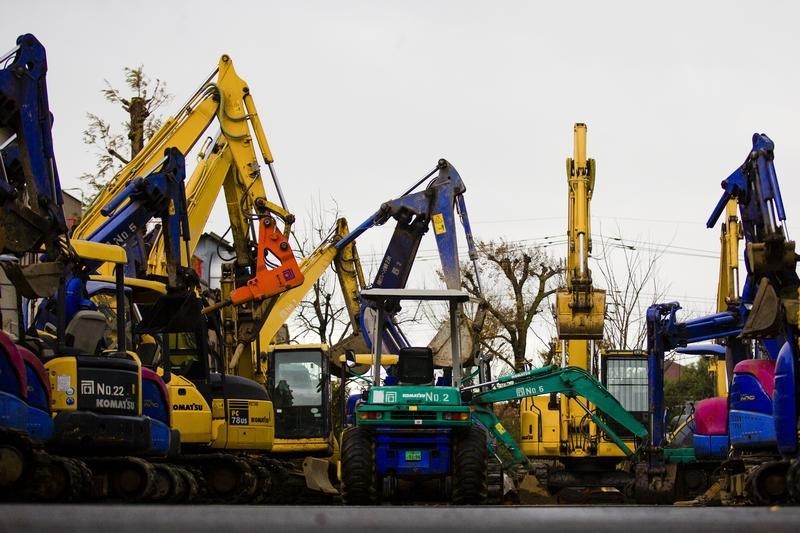By Tetsushi Kajimoto
TOKYO (Reuters) - Japan's core machinery orders tumbled the most in over a year, adding to fears of an economic contraction in the second quarter as exports slumped and consumer spending slackened.
The 7.9 percent fall in the key gauge of capital spending followed a recent run of soft indicators - including exports and factory output - which led analysts to forecast a second-quarter contraction when economic growth figures come out on Aug 17.
Policymakers see little chance of a return to recession, expecting the economy to stay on track for a moderate growth in the current quarter.
Weak data though could raise doubts about the economic outlook in the face of China's slowdown, adding yet more pressure on the Bank of Japan to trim its rosy projections and prompting calls for fresh stimulus to support expansion. Companies surveyed by the Cabinet Office have forecast that core machinery orders, a highly volatile data series seen as an indicator of capital spending in the coming six to nine months, will rise 0.3 percent in July-September.
Core orders, which exclude those of ships and electric power utilities, grew 2.9 percent in April-June from the prior three months, which was the fourth straight quarterly gain.
The Cabinet Office stuck to its assessment of machinery orders as "picking up", suggesting that the monthly decline may be a one-off.
"June's decline was due to a big drop in manufacturers' orders, which came as reaction to gains in the prior month in sectors such as steel," said a Cabinet Office official.
Capital spending holds the key to Japan's drive for a virtuous cycle of business investment, household income growth and consumer spending to pull the economy out of nearly two decades of deflation.
Recent signs suggest that firms may finally be shaking off their deflationary mindset, in which they long hoarded cash rather than investing profits in plant and equipment and boosting wages.
The Bank of Japan's last quarterly tankan business sentiment survey on July 1 showed that big Japanese firms plan to boost capital spending in the fiscal year to next March at the fastest pace in a decade.

A Reuters poll also showed last month two in five Japanese firms plan to boost capital spending this business year, with automobile and transport equipment makers, along with property and construction companies, among the more bullish sectors.